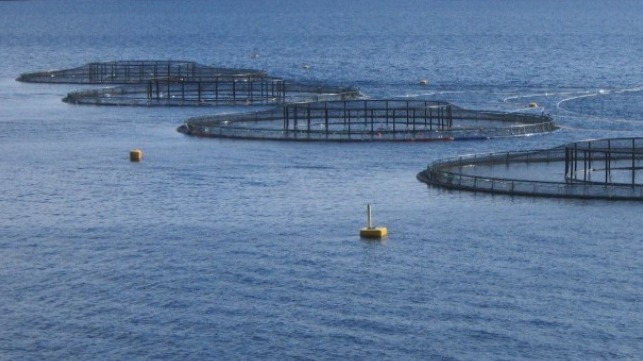Federal Court Blocks Offshore Aquaculture in U.S. Gulf of Mexico

In a decision issued Monday, the U.S. 5th Circuit Court of Appeals struck down the Trump administration's attempt to permit offshore aquaculture installations in federal waters, citing statutory limits on the authority of the Department of Commerce (and its National Oceanic and Atmospheric Administration). The 5th Circuit's decision upheld a previous 2018 district court ruling.
“We consider whether a federal agency may create an ‘aquaculture,’ or fish farming, regime in the Gulf of Mexico pursuant to the [Magnuson Stevens Act]. The answer is no,” the court ruled. “We will not bite. The Act neither says nor suggests that the agency [Department of Commerce] may regulate aquaculture. The agency interprets this silence as an invitation, but our precedent says the opposite: Congress does not delegate authority merely by not withholding it . . . If anyone is to expand the 40-year-old Magnuson-Stevens Act to reach aquaculture for the first time, it must be Congress.”
The nine plaintiffs in the case - a coalition of fishermen, charter boat operators, environmental activists and food safety advocates - welcomed the decision as a vindication of their four-year effort to block NOAA's aquaculture permitting process. They have opposed industrial-scale fish farming on the grounds that it would spread diseases and parasites to wild fish, lead to interbreeding between captive and wild fish populations, generate water pollution, and contribute to the depletion of the wild fisheries used to make feed.
"This is a landmark victory protecting our oceans and fishing communities," said George Kimbrell, the Center for Food Safety's legal director and the lead counsel in the case. "Allowing net-pen aquaculture and its environmental harms in the Gulf of Mexico is a grave threat, and the court properly held the government cannot do so without new and proper Congressional authority. Aquaculture harms cannot be shoehorned under existing law never intended for that purpose."

that matters most
Get the latest maritime news delivered to your inbox daily.
In its defense of NOAA's permitting regulation, the Trump administration argued that aquaculture development is essential to America's economic competitiveness. The White House affirmed its position with an executive order signed in May: in the order, the president said that his administration would "facilitate aquaculture projects through regulatory transparency and long-term strategic planning" and "identify and remove unnecessary regulatory barriers restricting American fishermen and aquaculture producers."
U.S. Circuit Judge Stuart Kyle Duncan, a Trump appointee, wrote the majority decision in the case.
